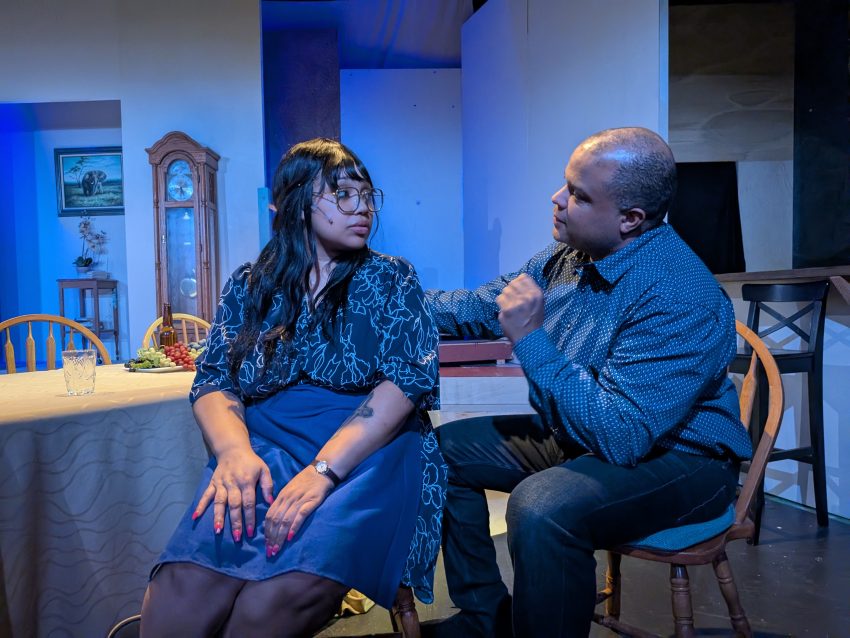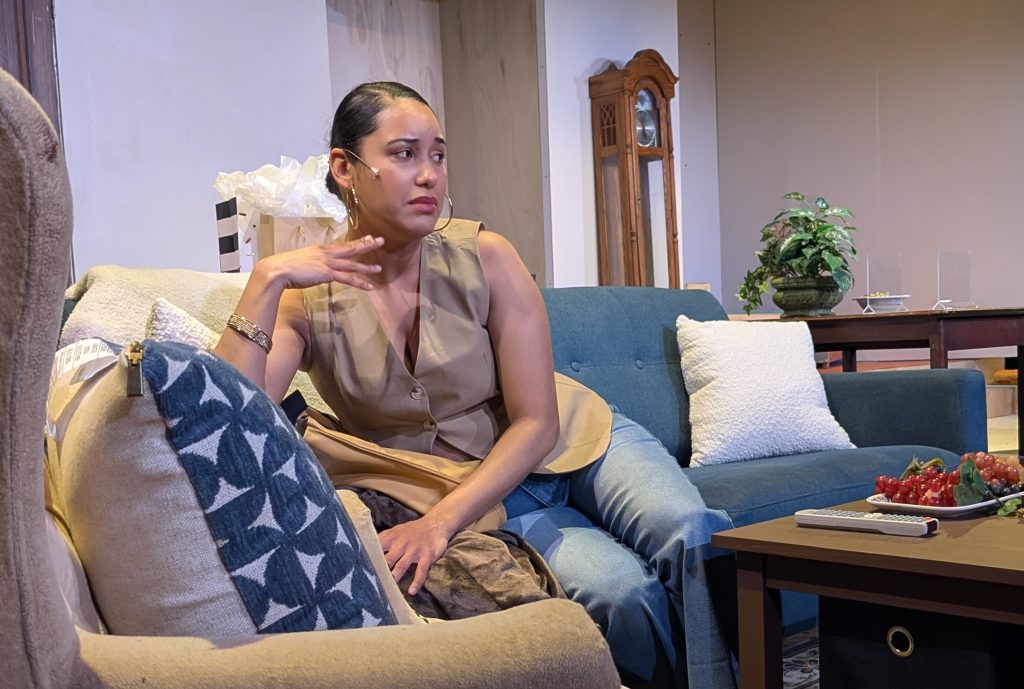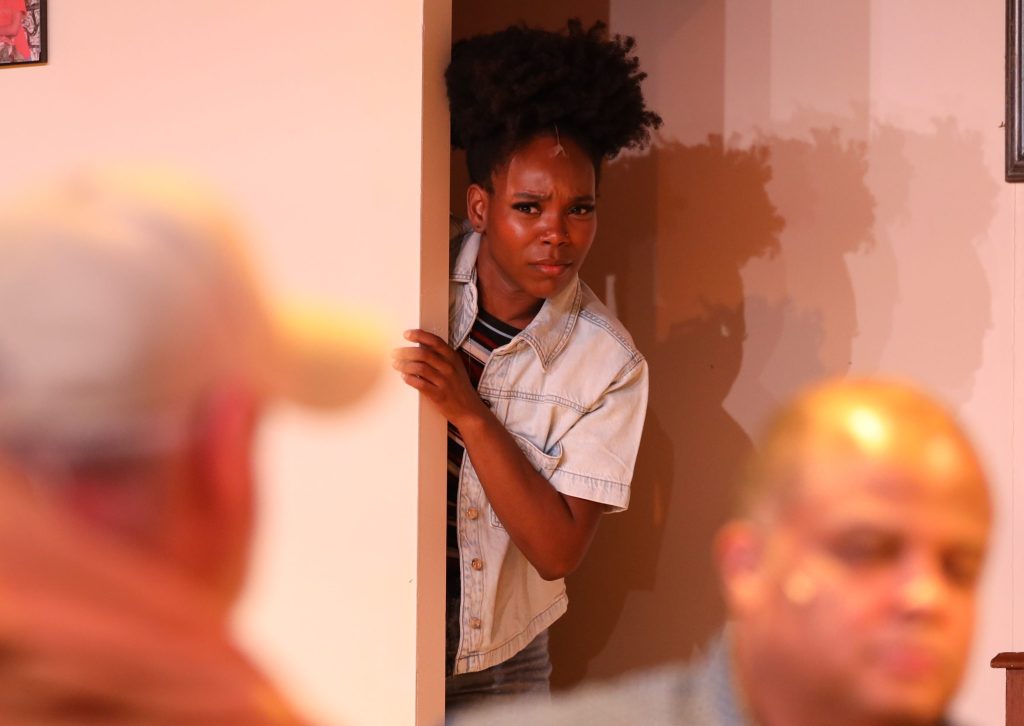
“Fairview”: Comedy Turns the Tables on White Gaze—at CCCT
Jackie Sibblies Drury Challenges Our Racial Stereotypes
by Lynne Stevens
In “Fairview,” actors ask: “If you could choose your race, what would you be? No one gets to choose, but characters in Jackie Sibblies Drury’s 2019 Pulitzer Prize-winning satire spout racial stereotypes non-stop.
As we view Black culture with the white gaze can we give it a fair view? Drury uses the cliches to challenge our preconceived notions about race.
Near the end, the play becomes an outrageous depiction of what Black culture looks like to a white audience. The result is both funny and embarrassing.
In the first drawn out sit-com-like scene, middle-class homemaker, Beverly Frasier (Asoula Jasmine Avegalio) anxiously bustles to prepare for her mother’s birthday party. Anxious Beverly and family enact a dynamic reminiscent of The Cosby Show. They play the cliché roles of a successful middle-class Black family delightfully, drawing us in with comedy and funky dancing.
Beverly’s husband Dayton (Gary Stanford Jr.) brings silverware and root vegetables, as ordered by his wife. While Beverly preens, we watch like passive TV viewers.

Beverly’s vain sister Jasmine (Ashanna McClay Andrews) swans in with criticism of Beverly’s food. She wants Beverly to relax instead of reaching for perfection, but she loves pushing her older sister’s buttons.
High achieving teen-age daughter Keisha (Raven Douglas) bounds in full of energy. Keisha is excited about her basketball team and the stress of getting ready for college.
After a mysterious blue power surge, the actors re-run the scene, but without words. But this time, critical voices rise from the audience where white actors loudly debate, citing the worst racial cliches. They wonder: “What race would you be if you could choose?”

The white voices carry on, critiquing the show, while the onstage actors mime the scene again—an unsettling effect. I don’t know where to look. I’m afraid I will miss out if I look away from the stage.
One white actor, Jimbo (Henry Perkins), declares he would choose to be Asian, but Suze (Heather Kellogg-Baumann) doesn’t see his point. Jimbo rants that we’re living in his movie. He is a toxic narcissistic white male, and he thinks he can tell other people’s stories. But he doesn’t know this family at all.
Like the film American Fiction, drawn from Percival Everett’s book Erasure, the play ends with an over-the-top surprise.
Clever daughter Keisha has had enough. She breaks the fourth wall and talks to us seriously. Keisha begs us to come forward and share, to find common ground, in this difficult question of race and culture:
I don’t need to sit down.
I need to ask you to leave so that I can have some space to think.
I can’t think in the face of you telling me who you think I am with your loud self and your loud eyes and your loud guilt – I can’t hear myself think.
Black and white families have bills to pay, classes to attend, and goals to reach. “Fairview” offers a comic opportunity to reflect on our similarities. Playwright Drury helps us laugh at our differences. We finally get a fair view of two companiable cultures—a refreshing, funny take on the “White Gaze.”
“Fairview” by Jackie Sibblies Drury, directed by Terrence Tyrie Ivory, at Contra Costa Civic Theatre, El Cerrito, California. Info: ccct.org – to February 16, 2025.
Cast: Asoula Jasmine Avegalio, Ashanna Andrews, Raven Douglas, Heather Kellogg-Baumann, Evelyn McCollum, Henry Perkins, Liliana Serpa, and Gary Stanford Jr.
Banner photo: Asoula Jasmine Avegalio (Beverly) & Gary Stanford Jr. (Dayton). Photos: Alexandra Rivers